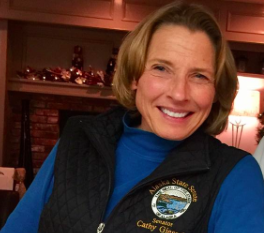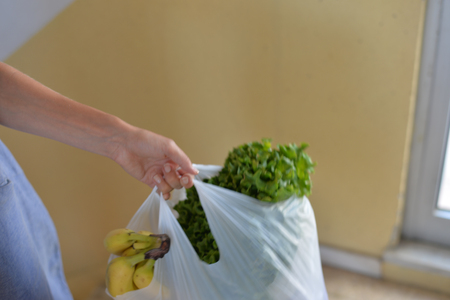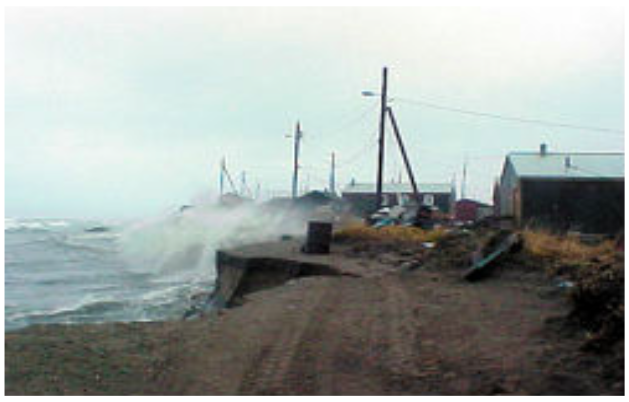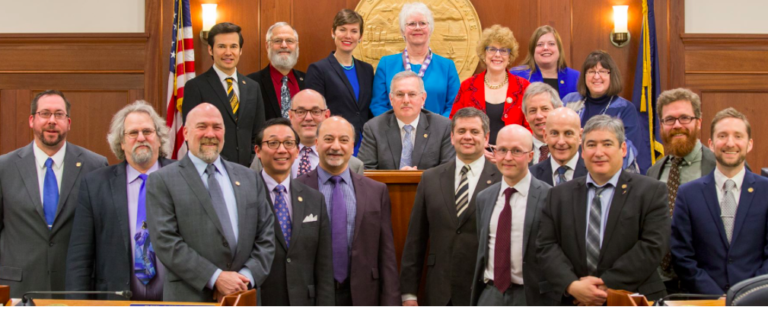It’s a new year and people are moving around. Here are some of the moves:
Alyse Galvin, of Great Alaska Schools, has her first fundraiser on Jan. 11 at 49th Street Brewery in Anchorage. She is challenging Congressman Don Young, the Dean of the House of Representatives, and she is running as a non-declared candidate (she calls it Independent), but evidently she has the blessing of the Alaska Democratic Party and is using Democratic fundraising software. This is a strategy that has worked for the Democrats time and again.
Steve Quinn, who has been a reporter on oil and gas issues for many years, most recently for Petroleum News and Reuters, has been hired by KTVA’s newsroom. For now, he’s behind the scenes, but he’s a good interviewer.
Richard Mauer, who was let go in the first wave of layoffs at the Anchorage Daily News, briefly worked at KTVA but that lasted only a few days. He is now the political news reporter/analyst at KTUU, replacing Austin Baird. Seen on television this week, his demeanor alarmed some viewers who thought he looked stoned. This will take some getting used to after Boy Scout Baird.
Steve Bannon, who took over Breitbart News after the untimely death of Andrew Breitbart, has stepped down. Bannon’s departure comes after he took on President Trump, as quoted in Michael Wolff’s tell-all Fire and Fury.
Erica Martinson, Alaska’s reporter in DC for the Anchorage Daily News, is on maternity leave after giving birth on Nov. 16. Her byline won’t return until mid-February, we are told.
Caslon Hatch, former all-things reporter at KTUU, wrapped up her work on Dec. 20 and was last seen tweeting and retweeting anti-Trump screeds. In her defense, while covering the news, her audience would never have known of her political leanings, as she remained professional.
Jordan Rodenberger, a former journalism major at UAF, is the new sports reporter at the Fairbanks Daily News-Miner.
Pete Ecklund, who is another wise numbers guy who knows how to keep a secret around the Capitol, will work for Sen. Lyman Hoffman in a Senate Finance role.
James Armstrong, who describes himself as a “budget dork,” and who worked at the Legislature forever and managed the operating budget and capital budget for several legislators, signed off on Dec. 29 with a classy post on Facebook, thanking everyone for all their friendship and mentorship over the years:
Friday will be my last day with the State of Alaska. After 30 years of service with the Legislature, Marine Highway System and the Municipality of Anchorage, it is time to go.
it is amazing how fast time flies! I want to personally thank my many bosses…
Mike Miller who hired me as a page;
the AMHS who hired me as a steward;
Sue Gullafson and Lynn Morley who hired me as a moderator;
Dave Donley who hired me an aide for the first time;
George Wuerch who hired me to do all things AMATS;
Bill Williams who hired me to do the capital budget;
Gary Wilken who hired me to do the operating budget;
Bill Stoltze who hired me to do finance and then the capital budget;
Pete Kelly who hired me to do the operating budget;and last but not least;
Lyman Hoffman to do the operating budget yet again.
i would be remiss in not thanking my mentors…Mike Navarre, Sam Cotten, Eldon Mulder and the late Tim Kelly and Billy Miles.
they always looked after me and were guiding influences in my life and career.
i will miss Juneau and being part of the process, and all the friends I have made through the years.
To quote my favorite song “Watching the Wheels”…I just have to let it go…
Cheers and it is off to Maui Saturday to goof off.
(He returned to Facebook not long after to also thank his ex-wife and Bill Thomas, before going back to his golf game on Maui.)















